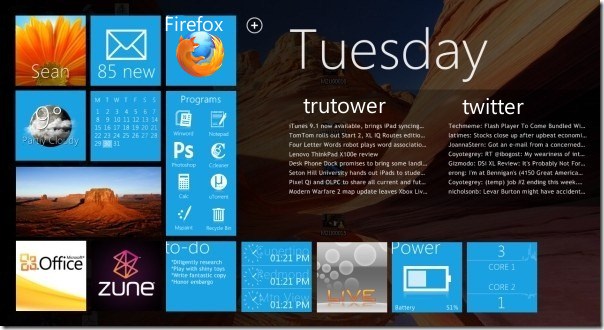Joe Belfiore, manager of the Windows Phone program at Microsoft, revealed some information about Windows Phone 8 in a video that was meant for private eyes only. The video was not made available. However, the features were.
The guys and girls at Pocketnow have come away with what looks to be a very promising list of features that are said to be included in the upcoming Windows Phone 8 OS by Microsoft.
Windows Phone 8, codenamed Apollo, is based on the Windows 8 kernel, unlike Windows Phone 7, which is based on Windows CE. Not only will the new mobile operating system will share a version number and UI with its desktop counterpart, it will also share the same ecosystem, along with the underlying code and components.
Thanks to this, applications designed for either platform can work on the other with only minor changes. Not only that, Windows Phone 8 will also be backward-compatible with all of the apps designed for Windows 7, which are expected to reach 100,000 by the time Windows 8 releases.
Microsoft (thankfully) will also be ditching the Zune client in favor of a new dedicated companion app for syncing your Windows Phone 8 with your Windows 8 PC. The Xbox app on Windows Phone will also find a companion app on Windows 8. There will also be much deeper integration of SkyDrive with the two platforms, similar to iCloud on Apple’s devices.
Microsoft will also be letting OEM’s customize the camera app. There will be the basic Windows Phone camera app, which can then be overlaid by customization from the OEMs.
Lastly, Skype will finally be making an appearance on Windows Phone. It will remain a separate, optional app but once installed will provide much deeper integration compared to other platforms, to the point where regular and Skype calls will be indistinguishable.
Now moving on to the hardware, Windows Phone 8 will be bringing some much requested changes there as well. For starters, WP8 will have support for multi-core processors. Note that we say multi-core and not just dual or quad-core. It will also introduce support for three new resolutions, bringing the total to four (actual resolutions unknown at this point). As you may know, Mango is expected to reduce the hardware requirements of Windows Phone for it to run on lesser hardware. And now with Apollo, you can expect Windows Phone to run on a lot more hardware than before. Lastly, microSD card support will also be added.
Other new features include a new data management system, that will keep a track of your downloaded data to prevent ‘Bill Shock’. This includes automatically switching to Wi-Fi when available to prevent cellular data use and also an Opera Mini-like data compression on the new Internet Explorer browser.
NFC (Near Field Communication) will also be fully integrated into the OS. Along with the usual file transferring, you will also be able to use it for making mobile payments with your phone.
For business users, Windows Phone 8 will offer full-device encryption with BitLocker, currently found on Microsoft’s desktop operating system. Businesses will also be able to deploy applications to the devices privately without having to go through the Marketplace.
Windows Phone 8 looks to be moving in the right direction. We’ll keep our eyes open for any additional information regarding Windows Phone 8.

